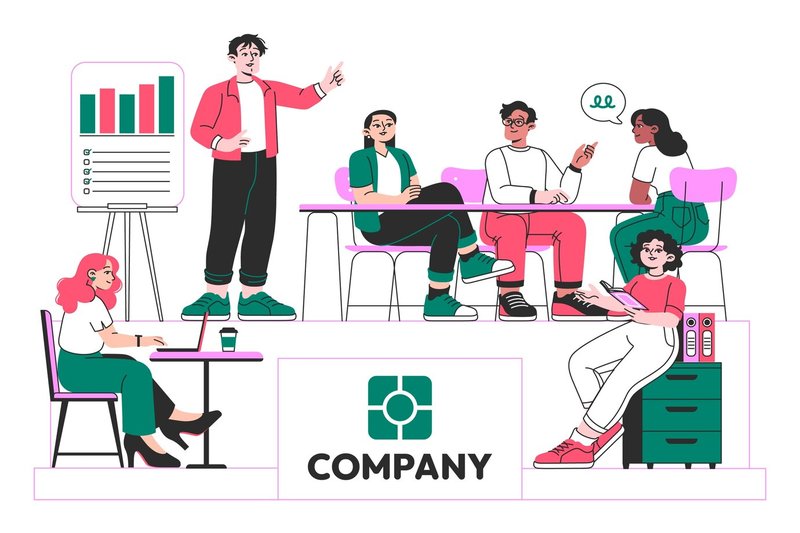In recent years, graduates face more challenges than ever before. It used to be that finding an entry-level job without experience was common for recent grads. Now, many entry-level positions require two to three years of relevant experience. But where can you gain this experience? Employers often post job listings that demand more than what a new graduate typically has.
In this article, we’ll explore the reasons behind this shift, analyze the current job market, and suggest strategies to help you secure the experience needed to thrive.
How Have We Fallen Into This Trap?
Most entry-level jobs now demand more than what true entry-level candidates can offer: relevant experience, extensive theoretical knowledge, often a portfolio, and a perfect fit for the team. To be considered for a role in their field, recent graduates must present themselves as fully developed professionals. Several factors have contributed to this situation, some interconnected, others separate, evolving over time and making it harder for new graduates to start their careers.
Too Many Applicants

While applying to numerous job openings might seem advantageous, it comes with drawbacks. Alongside your own job search, there are hundreds of fellow graduates also eager to land a position. This intensifies the competition, making it more difficult to get noticed.
Firstly, Applicant Tracking Systems (ATS) were created to address this very issue — HR specialists and recruiters simply don’t have time to sift through the massive influx of resumes manually. Proponents argue that ATS reduces bias. However, the drawback is that these systems rely on keyword matching, often missing the depth of qualifications or fit, resulting in qualified candidates being overlooked.
Secondly, from an employer’s perspective, the influx of applicants gives the illusion of an abundance of highly qualified candidates to choose from. Despite this, many employers still report significant labor shortages, highlighting a disconnect between applicant volume and available talent.
Technological Advancement
While technological progress is largely positive, it has also created challenges for some. Many tasks once handled by entry-level clerks, such as document processing, inventory management, scheduling, and IT support, are now automated. This shift has reduced the number of jobs available for recent graduates.
Moreover, employers now seek individuals with field experience or specialized skills — often both. Being a knowledgeable, passionate graduate is no longer a bonus; it's the bare minimum expected.
Decreased Significance of Higher Education

Over the past decade, higher education has shifted from being a unique opportunity to a basic necessity. More families ensure their children attend college, leading to a saturation of degree holders. As a result, the value of simply earning a degree has diminished.
When employers receive dozens of applications, many of which include candidates with completed higher education, they must focus on other factors, such as the reputation of the college, internships, work experience, and skills.
Internships Are Entry-Level
Isn’t it a great opportunity for employers to cut expenses by offering unpaid jobs when experience is so crucial? That’s exactly why internships have become a common practice for both students and companies.
Fifteen years ago, internships were a way for undergraduates to gain practical experience and expand their network, connecting with helpful professionals like HR specialists. It was a great way to pave a career path.
Now, internships are more about providing cheap labor for employers. For students, they have become a necessary part of education. The more internships you have, the better your chances, so students start earlier in their academic careers to meet ever-changing expectations.
What’s Wrong with Internships Then?

“Okay, so entry-levels are now upper-levels, and internships have become the real entry-levels. Why is that a problem? Nothing significantly changes except for salaries, right?”
Actually, there’s much more than just salaries. Let’s dive into the other issues that arise from the growing popularity and demand for internships:
Limited Access
Even though the demand for internships is growing rapidly among both students and companies, not every small town has opportunities to offer. Many students live on campuses or far from major cities, leaving them unable to relocate for internships.
Another critical issue ties back to salaries. Even if someone is willing to move, they still need money for rent and groceries. The question is: how many students from small towns can afford to cover living expenses, while doing a non-paying internship?
Irrelevant Experience
There was once a belief that working a simple customer service job in a café or shop offered valuable skills like discipline, responsibility, and time management. So, replacing a low-wage or unpaid internship with a paid job might seem like a reasonable choice.
However, today, such experience is often seen as irrelevant and may hurt your job search. Listing unrelated work history on your resume can reduce your chances of passing ATS checks and may give recruiters the wrong impression, as if you prioritize money over professional growth.
Ways of Increasing the Chances to Finally Land a Job

There will always be circumstances we cannot control, and there will always be obstacles standing in our way. This is how life goes. However, with enough effort and determination, you can tip the scales in your favor. Here are some ideas on how to expand your internship options:
- Look for remote opportunities. In this digital era, where over 20% of the population already works remotely or in hybrid roles, it’s much easier to find a job across the country.
Advantages. Remote work offers the same benefits as an on-site job: hands-on experience and a solid addition to your resume. It also reduces costs such as relocation, commuting, and frees up time for personal needs or further education.
Disadvantages. Limited to those who can work online. Doesn’t eliminate high competition. - Consider Gig Work for Experience. For those in creative fields or related areas, gig work is an excellent way to gain experience and build your portfolio. All you need is some free time to balance it with your academic commitments.
Advantages. One of the key benefits is that you don’t have to wait for an academic break to start; you can dive in right away. This experience will enhance your time management skills, sense of responsibility, and often foster teamwork.
Disadvantages. Availability may be limited across different fields, similar to remote work, and it lacks the stability of traditional full- or part-time jobs. - Regularly update your professional social network profiles. Keep them up-to-date, avoiding it becoming too casual or personal. After all, platforms like LinkedIn and uHired are an important part of your professional image.
Advantages. A well-crafted profile can showcase much more than a one-page resume; it allows you to present yourself as a unique individual.
Disadvantages. This advice is only beneficial if you've already passed the initial ATS checks, which require your resume to be keyword-optimized. - Develop your network. Networking is an essential skill for every modern professional and a valuable tool for launching your career. Many students depend on their relatives’ networks or seek help from professors, which is a valid approach. However, if you can cultivate professional relationships with skilled individuals you barely know, it can be a significant advantage.
Advantages. Connections in your network can lead to new career opportunities and act as your references to support your candidacy.
Disadvantages. Finding the right people at the right time can be challenging. Additionally, building trustworthy professional relationships takes time, so starting early is beneficial.
There is no such thing as an “inescapable situation,” and maintaining a positive attitude toward life's challenges is the first step to overcoming them. Even if the job market doesn’t appear as we would like, there are still options available and situations we can influence. Accept the circumstances as they are, but don’t let them weigh you down — pave your own way! Try any of the tips above or come up with your own, but never stop striving. Winning this life lottery requires hard work, not just luck.
